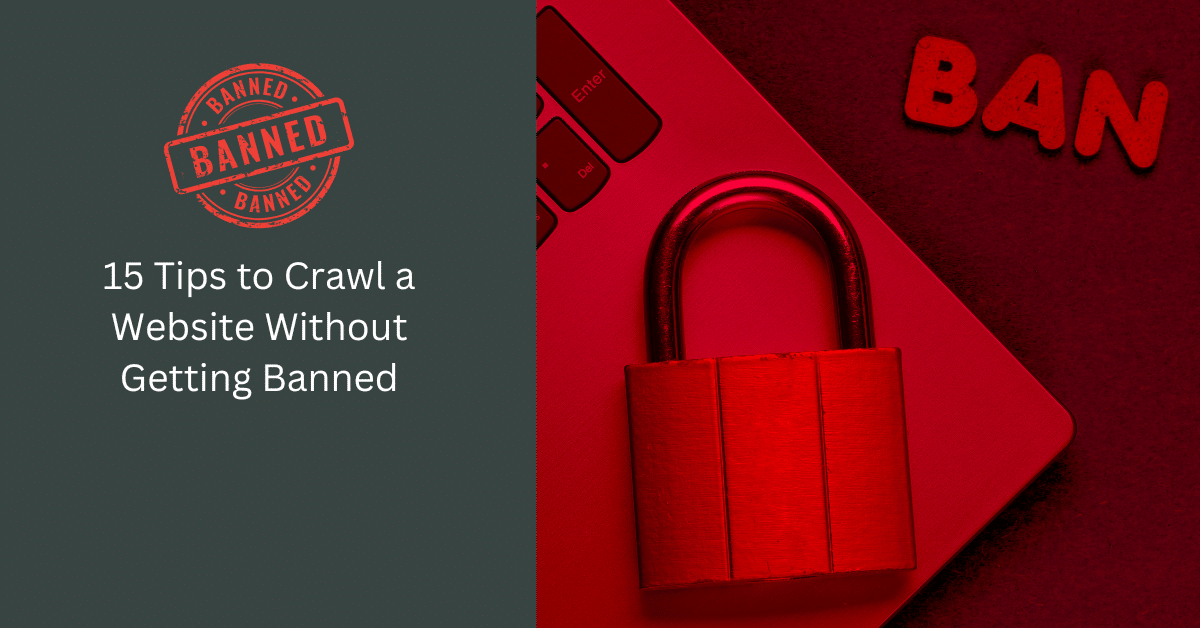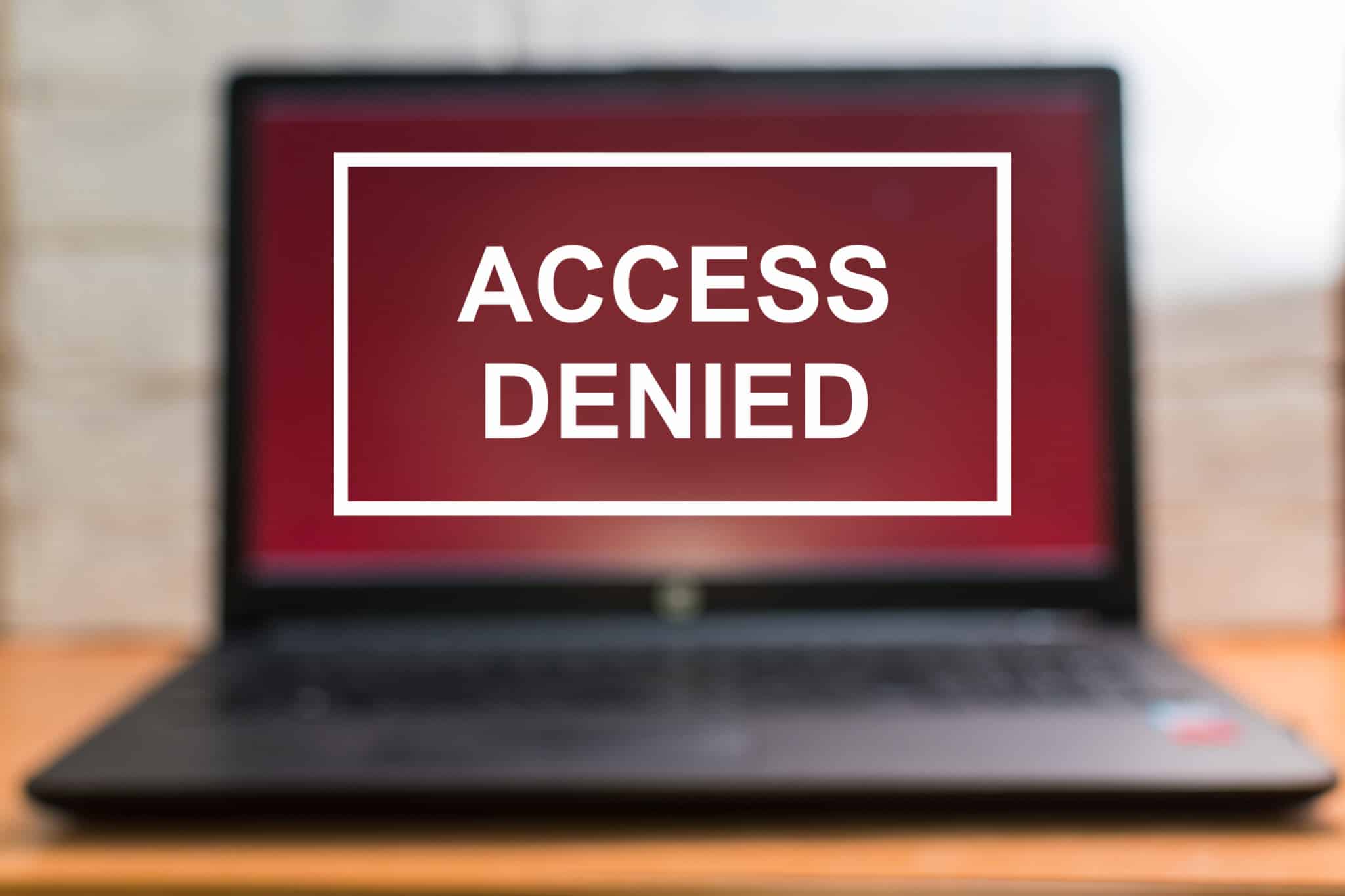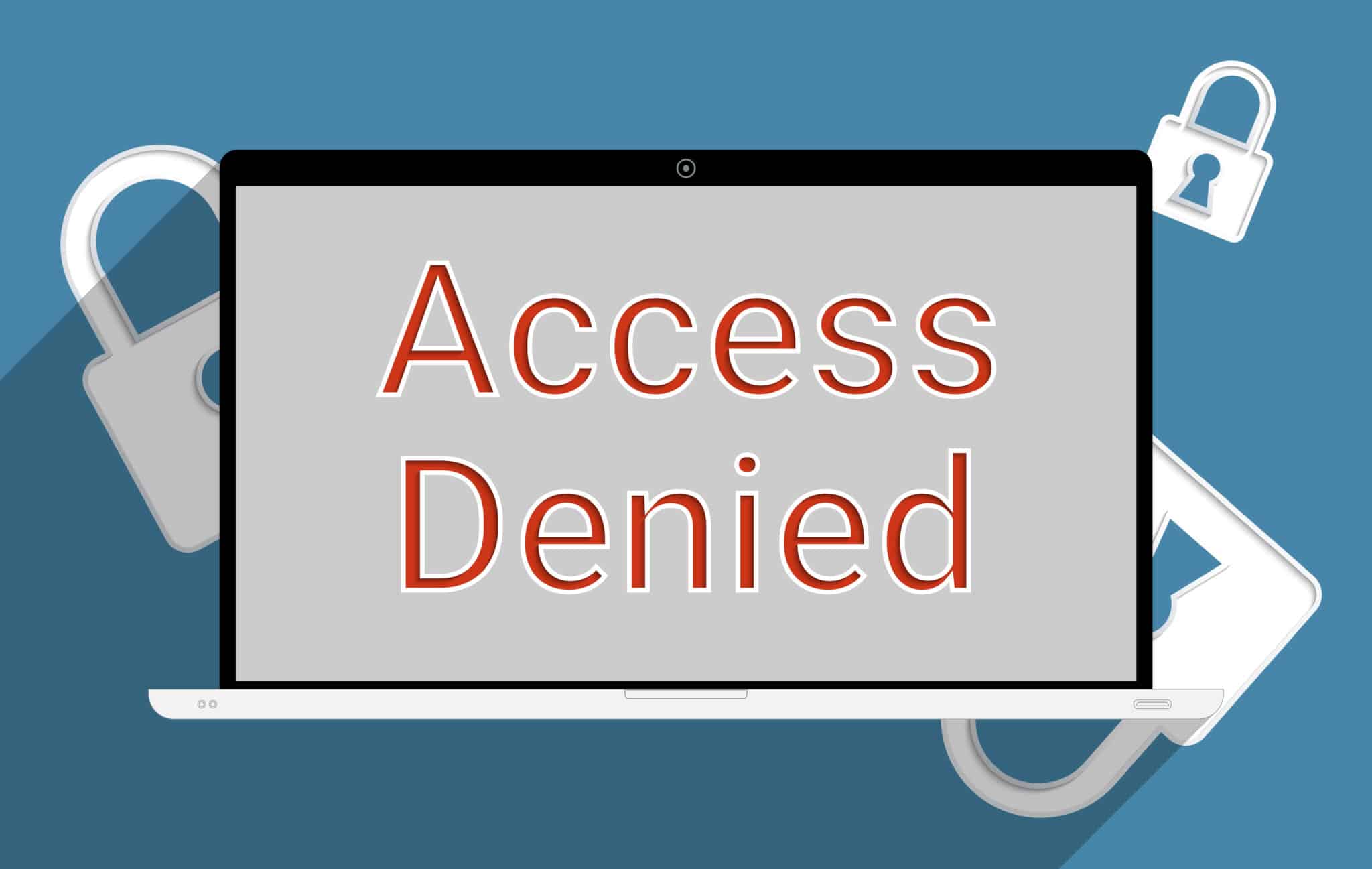
In the vast and ever-evolving realm of the internet, web crawling plays a pivotal role in data extraction, indexing, and understanding the digital landscape. Web crawlers, also known as bots or spiders, are used by search engines, researchers, and marketers to explore and gather information from websites. However, there’s a delicate balance to maintain between efficient crawling and respecting a website’s terms of service. Getting banned from a website due to improper crawling practices can hinder your progress. In this article, we’ll explore 15 essential tips to crawl a website without getting banned.
Before you embark on web crawling, it’s crucial to understand what it entails. Web crawlers are automated scripts that navigate websites, following links and collecting data. Having a solid grasp of this process will enable you to make informed decisions throughout your crawling journey.

Respect Robots.txt
Prior to initiating any website crawling or scraping activities, it is imperative to verify that the targeted website permits the extraction of data from its pages. This involves a meticulous examination of the website’s robots exclusion protocol, commonly referred to as the “robots.txt” file, and a strict adherence to the stipulated rules and directives.
Even in instances where a website explicitly allows crawling, it is paramount to approach the process with a profound sense of respect and caution to prevent any harm or disruption to the webpage. To achieve this, it is advisable to adhere to several key principles outlined in the robots exclusion protocol. These principles encompass crawling during off-peak hours to minimize server load, restricting the volume of requests originating from a single IP address, and incorporating deliberate delays between consecutive requests.
It is crucial to note that, despite a website’s initial consent for web scraping activities, there remains the possibility of encountering obstructions or restrictions. Therefore, it is incumbent upon the crawler to implement a comprehensive set of measures to ensure seamless operations. For a more comprehensive exploration of this subject, we recommend referring to our detailed web scraping Python tutorial.
Set User-Agent Appropriately
The majority of web servers hosting websites possess the capability to scrutinize the HTTP request headers generated by crawling bots. Within these HTTP request headers lies a critical component known as the “user agent,” which serves as a repository of diverse information, spanning from the user’s operating system and software to the type of application and its corresponding version.
It is worth noting that servers have the ability to swiftly identify user agents that appear suspicious. Authentic user agents typically mirror the commonly used HTTP request configurations employed by genuine human visitors. To avert the risk of being detected and potentially blocked, it is imperative to tailor your user agent in such a manner that it closely resembles that of an organic visitor.
Given that each web browser request is accompanied by a user agent, it is advisable to frequently change your user agent during crawling activities. This dynamic approach helps in evading detection and fosters a more inconspicuous presence.
Furthermore, it is of paramount importance to employ up-to-date and widely recognized user agents. Using an antiquated user agent that is associated with a browser version no longer in circulation, such as a 5-year-old Firefox version, can trigger significant suspicion. To identify the most current and prevalent user agents, there are publicly available databases on the internet that provide insights into the latest trends. Additionally, we maintain our own regularly updated user agent database; please do not hesitate to contact us if you require access to this valuable resource.
Mind Your Crawling Frequency
Excessive crawling can overload a website’s server, leading to slower loading times or even a ban. Adjust your crawling frequency to be respectful of the site’s resources.
How to Find the Right Crawling Frequency
Website Type: The optimal crawling frequency can vary based on the type of website. For news sites or e-commerce platforms with frequent updates, a higher crawling frequency might be necessary. On the other hand, static informational websites may require less frequent crawling.
Crawl Budget: Consider the crawl budget allocated to your web crawler. This budget includes the number of pages you can crawl and the frequency at which you can crawl them. Distribute your crawl budget wisely to ensure efficient coverage of the website.
Server Load: Monitor the website’s server responses during crawling. If you notice increased response times or errors, it’s an indication that the server is struggling to handle the crawl rate. Adjust your crawling frequency accordingly.
Robots.txt Guidelines: Some websites provide specific crawl-rate recommendations in their robots.txt file. Adhering to these guidelines demonstrates your commitment to respecting the website’s resources and policies.
Incremental Crawling: Consider implementing incremental crawling, where you only crawl new or modified content. This reduces the strain on the server and minimizes redundant data retrieval.
Custom Crawl Rate: In cases where there are no explicit guidelines, set a custom crawl rate that aligns with the website’s capacity. This can be done by introducing delays between requests to ensure a more gentle approach.
Use Proxies and Rotate IP Addresses
Web crawling relies significantly on the use of proxies, making them an indispensable tool in the crawler’s arsenal. Selecting a trustworthy proxy service provider is paramount, and you’ll often have to make a choice between datacenter and residential IP proxies, depending on the specific requirements of your task.
The utilization of a proxy acts as an intermediary layer between your device and the target website, offering several benefits:
IP Address Management: Proxies help mitigate IP address blocks by masking your actual IP address with that of the proxy server. This is essential for maintaining uninterrupted access to websites during crawling.
Enhanced Anonymity: Proxies enhance your anonymity while crawling, making it challenging for websites to trace your activity back to your original IP address. This added layer of privacy is particularly important for sensitive or confidential web scraping tasks.
Access to Geo-Restricted Content: Proxies enable you to access websites and content that may be restricted or geo-blocked in your region. For instance, if you’re located in Germany but need to access web content available only in the United States, using a US proxy can facilitate this access.
Limit Concurrent Requests
Limiting concurrent requests is a critical aspect of responsible web crawling. It involves restricting the number of simultaneous requests your crawler makes to a website’s server. This practice is essential to prevent overloading the server and causing disruptions.

Implement Delays Between Requests
Introduce random delays between requests to mimic human behavior and reduce the chances of detection as a bot.
Handle CAPTCHAs Effectively
When confronted with CAPTCHAs, employ automated solutions or manual intervention to solve them. This will keep your crawling process uninterrupted.
Monitor Server Responses
Keep a close eye on server responses. If you notice an increase in error codes or timeouts, adjust your crawling strategy accordingly.
Avoid Scraping Unnecessary Data
Focus your crawling efforts on relevant data. Scraping unnecessary information not only wastes resources but can also lead to a ban if done excessively.
Avoid JavaScript
Gathering data stored within JavaScript elements can pose a considerable challenge. Websites frequently employ various JavaScript functionalities to present content based on user interactions. A prevalent practice involves displaying product images in search bars only after users have provided specific inputs.
However, it’s important to acknowledge that JavaScript can introduce a range of complications. These may include memory leaks, application instability, and, in some instances, complete system crashes. The dynamic nature of JavaScript features can sometimes become burdensome. Therefore, it’s advisable to minimize the use of JavaScript unless it is absolutely essential for the functionality of a website or application.
Follow Ethical Crawling Practices
Always adhere to ethical standards when crawling. Avoid disruptive or harmful activities that could harm the website or its users.
Be Mindful of Resource Consumption
Efficient crawling doesn’t mean excessive resource consumption. Optimize your crawler to use resources responsibly and minimize server load.
Stay Informed About Website Changes
Websites evolve over time. Stay informed about changes in website structure or terms of service that may impact your crawling activities.
Utilize Professional Crawling Tools
Consider using professional crawling tools and services that offer advanced features and support to ensure a smooth and respectful crawling experience.
Be Mindful of Data Privacy and Legal Compliance
Respect data privacy laws and regulations, such as GDPR and CCPA, when crawling websites that handle personal information. Ensure that you’re in compliance with these laws and only collect data that you have explicit consent or legal rights to access. Violating data privacy laws can lead to severe legal consequences and reputational damage.

Conclusion
Collecting public data need not be a concern fraught with fears of blacklisting during your scraping endeavors. By appropriately configuring your browser settings, attending to fingerprinting considerations, and remaining vigilant against potential honeypot traps, you can navigate the data extraction process with confidence.
Crucially, integrating trustworthy proxies into your scraping toolkit and conducting your scraping activities in a respectful manner will go a long way in ensuring the smooth and successful acquisition of public data. This, in turn, will provide you with a valuable stream of up-to-date information to enhance your business operations.
Feel free to explore the capabilities of our versatile web scraper, which is available for a trial period, and implement some of the strategies mentioned above to optimize your data gathering endeavors.






Bu proxs internet olmsysn her yerde çekecek degilmi ücretler. Aylık mi yıllık midir